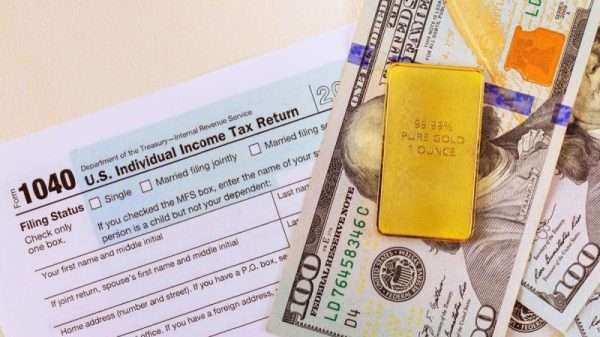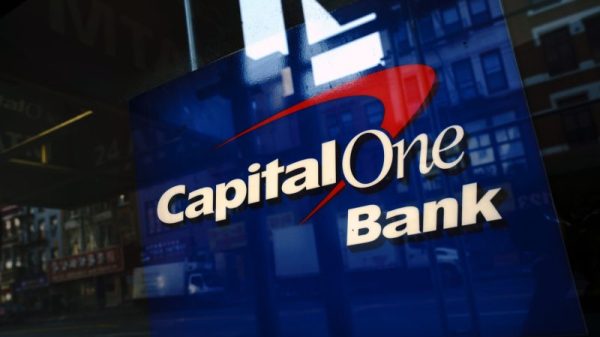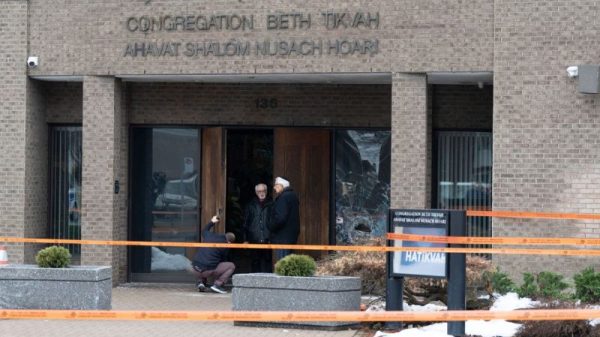US Vice President Kamala Harris met with recipients of President Joe Biden’s Pardon for the Offense of Simple Possession of Marijuana as part of the Democrats’ cross-country campaign trail. She urged the Drug Enforcement Administration (DEA) to release its findings on rescheduling cannabis ‘as quickly as possible.’
Meanwhile, as Massachusetts pushes for broader cannabis clemency, Hawaii has passed an amended expungement bill that will institute a pilot program instead of automatic expungements for low-level cannabis convictions.
Stay up to date on the latest news, trends and policy developments in the cannabis industry with our round-up below.
Canada’s finance minister knew about cannabis industry hardships
MJBizDaily reported this week that it has acquired briefing materials that reveal Canadian Finance Minister Chrystia Freeland was warned about the “financial distress” facing cannabis producers in the fall of 2023.
In a briefing titled “Update on financial distress in cannabis production industry,” an official within the Department of Finance’s Tax Policy Branch lays out the issues affecting the sector, including mounting excise tax debts and cannabis price drops caused by inventory liquidations from failed companies.
The document also discusses the disproportionate earnings of provincially owned cannabis wholesalers in contrast to the lack of sustainable profits brought in by their non-provincial counterparts.
“It remains the case that after five years of legalization, there are no licensed producers of legal cannabis products that are consistently profitable,” the unnamed official wrote to Freeland, according to MJBizDaily. Meanwhile, federally licensed cannabis producers owed the Canada Revenue Agency C$273.4 million as of December 29, 2023. A separate memo marked “secret” was reportedly also sent to the minister, but it has been almost fully redacted.
The Canadian cannabis industry has been calling for reforms to excise duty tax rates for years. As it stands, dried cannabis is taxed at a rate of C$1 per gram, or 10 percent of the wholesale price, whichever is higher. However, as per the report, “in practice, the 10 percent rate rarely applies.” Ahead of the 2023 federal budget, the Cannabis Council of Canada urged the government to lower the rate. However, the budget was released with no amendments apart from allowing licensed producers to submit excise duties on a quarterly basis rather than monthly.
The House of Commons Standing Committee on Finance has proposed an adjustment that would limit the excise duty rate to 10 percent of the transaction value. Canada’s federal budget for the 2024/2025 fiscal year is due on April 16.
Vice President Harris meets with cannabis pardon recipients
US Vice President Kamala Harris, along with rapper Fat Joe and Kentucky Governor Andy Beshear (D), met with three cannabis pardon recipients on Friday (March 15) for a roundtable conversation on their experiences under Biden’s clemency proclamations. A White House official told Marijuana Moment that the conversation would “highlight various actions that the Biden-Harris Administration has taken to advance long-overdue criminal justice reforms.”
In a statement at the beginning of the meeting, Harris called on the DEA to present the findings of its ongoing cannabis rescheduling review. The Department of Health and Human Services issued a recommendation to the DEA in September 2023, calling on the department to reschedule cannabis from a Schedule I substance to Schedule III. The DEA is currently reviewing the issue, with several members of Congress urging regulators to act quickly.
“I cannot emphasize enough that they need to get to it as quickly as possible, and we need to have a resolution based on their findings and their assessment. This issue is stark when one considers the fact that on the schedule currently, marijuana is considered as dangerous as heroin. Marijuana is considered as dangerous as heroin and more dangerous than fentanyl,” Harris said ahead of the roundtable discussion.
Harris, who started her career as a prosecutor in California in 1990, also took the time to acknowledge her role in an unequal criminal justice system. In 2010, Harris opposed Proposition 19, also referred to as the Regulate, Control and Tax Cannabis Act. However, her position has shifted in favor of reform over the years. As a US senator in 2019, Harris sponsored the Marijuana Opportunity, Reinvestment and Expungement Act, a bill to federally legalize marijuana.
Biden and Harris have made cannabis reform a prominent part of their campaign agenda, and the president has taken executive action on the matter during his presidency, such as his 2022 pardon of federal cannabis possession convictions, which he later expanded in 2023. The president also initiated the rescheduling review, a move that won him 11 impression points among young voters aged 18 to 25.
Hawaii reduces scope of automatic cannabis expungement bill
Just a week after Hawaii’s Senate voted to pass Bill 3335, which would legalize the possession of up to an ounce of cannabis and up to 5 grams of cannabis concentrates, it has significantly reduced the scope of a separate bill that would have seen tens of thousands of low-level cannabis convictions and arrests automatically expunged.
A five member panel voted to advance the amendment on Friday (March 15).
The House passed the measure on March 6 before sending it on to the Senate. According to the bill’s sponsor, David Tarnas (D), approximately 30,000 people would have been eligible for expungements.
However, on Tuesday (March 12), the Senate amended the proposal to a single-county pilot program, which was suggested by the Department of the Attorney General during testimony at the hearing.
Marijuana Moment broke the story. “Instead of the bill in its current form, the Department proposes a pilot project whereby certain individuals who have been arrested solely for marijuana possession … and whose arrest resulted in a non-conviction disposition, have the arrest expunged via a state-initiated process,” Attorney General Anne Lopez said.
The department expressed concerns over the additional law enforcement protocols originally laid out in the bill, arguing that limiting the scope to a single county will help keep the caseload manageable.
“Results of the pilot project could then be used to evaluate the project’s effectiveness, utility, and efficiency, and to allow the Data Center to make more informed recommendations for future efforts,’ said Lopez, who is concurrently working on a state-wide recreational legalization plan.
The amendment was backed by Senator Karl Rhodes (D), chair of the Senate Judiciary Committee. “Instead of the bill’s statewide automatic expungement program for arrests and convictions, I propose that we adopt the attorney general’s pilot program for state-initiated expungement of marijuana possession arrests,” he said at the hearing.
The change was met with dismay from cannabis advocacy groups in Hawaii. Karen O’Keefe, director of state policy for the Marijuana Policy Project, sees the amendment as a step backward, and highlighted the discrepancy between the Senate’s March 5 vote to legalize recreational cannabis and its stance on expungement protocols.
“An economic life sentence is an outrageously disproportionate penalty for possessing a substance that most Hawaii residents — and the Hawai’i Senate — believe should be legal,” O’Keefe told Marijuana Moment.
Others are optimistic about the state-initiated expungement process in place, regardless of its narrow scope.
“This is a huge step forward that will encourage Gov. Green to amplify relief for those with cannabis records through his clemency powers, something the Hawai’i legislature has already urged him to do,” said Frank Stiefl, senior policy associate for the Last Prisoner Project. Hawaii County, the state’s most populated county, is being considered as a possible location for the pilot program, as suggested by Rhodes.
Massachusetts to vote on plan to pardon cannabis misdemeanors
Massachusetts Governor Maura Healey announced on Wednesday (March 13) that she will take executive action to pardon misdemeanor cannabis possession convictions.
“If approved by the Governor’s Council, this would be the most comprehensive action by a governor since President Joe Biden pardoned federal marijuana possession conviction and called on governors to take similar action in their states,” Healey’s office said. The office also said it is “proud to answer (Biden’s) call to take action in the states.”
The pardon will automatically be applied to all state court misdemeanor convictions before March 13, 2024, and in most cases individuals will not need to take on any of the bureaucratic burdens of updating their criminal records.
“Nobody should face barriers to getting a job, housing or an education because of an old misdemeanor marijuana conviction that they would not be charged for today,” Healey said.
Healey’s latest move is one of many she has taken during her years of public service to correct inequalities in the criminal justice system. After taking office as governor in January 2023, she became the first Massachusetts governor in over three decades to recommend pardons during her first year in office, and has pardoned 13 individuals since July 2023.
In October 2023, Healey also issued new clemency guidelines that focus on fairness and equity in the criminal justice system. Among other key aspects, the guidelines shift the focus from determining guilt to considering whether continued incarceration is justified, addressing systemic bias and encouraging the use of clemency more often and earlier.
MSO submits seeks tax refunds under Section 280E
Cannabis multi-state operator (MSO) Trulieve Cannabis (CSE:TRUL,OTCQX:TCNNF) has received a total of US$113 million in tax refunds, it announced in its Q4 earnings report, released on February 29.
In October 2023, the Florida-based cannabis company announced it would be seeking US$143 million in tax refunds for the years 2019, 2020 and 2021 from the Internal Revenue Service (IRS) under Section 280E of the Internal Revenue Code.
“This determination is supported by legal interpretations that challenge the company’s tax liability under Section 280E of the Internal Revenue Code,” Trulieve said in a news release.
Section 280E of the Internal Revenue Code prohibits businesses involved in the production, distribution or sale of Schedule I or II controlled substances, including marijuana, from taking standard tax deductions or credits issued to other businesses. However, some cannabis companies have argued that certain expenses should be deductible despite Section 280E and have filed amended tax returns with that in mind.
Twenty states have made efforts to reduce the tax burden on the cannabis industry by passing legislation that allows cannabis companies to deduct regular business expenses from their state income taxes.
However, federal tax law remains unchanged, although companies may challenge Section 280E. After a review, the IRS may issue a refund. Should the DEA follow the recommendation of the Department of Health and Human Services and move cannabis from a Schedule 1 substance to Schedule 3, the burden imposed by Section 280E would be eliminated, saving the 12 largest cannabis companies an estimated US$700 million.
The company reported that it received US$62 million in tax refunds for 2023’s fourth quarter, bringing the total to US$113 million in refunds to date. It also received a rejection notice for US$1.2 million.
Aside from that, Trulieve is seeking US$31 million in state tax refunds. The company announced its plan to file further amended returns this week, including for 2022, and expects a refund of approximately US$26 million.
Securities Disclosure: I, Meagen Seatter, hold no direct investment interest in any company mentioned in this article.







































